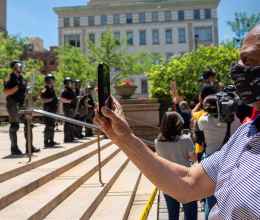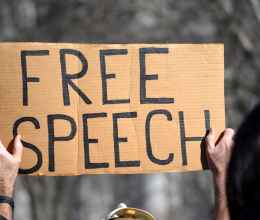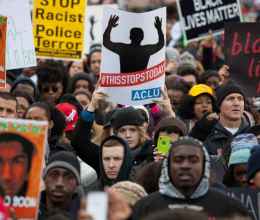NEW ORLEANS – The City of Abbeville has paid a total of $32,900.00 in settlement of the ACLU of Louisiana's suit regarding a policy prohibiting police department employees from engaging in commentary on personal social media if the comments might give a "negative view towards" the police department, the City or its employees or residents. The City of Abbeville has also revised that policy in accordance with guidelines set by the ACLU.
Colt Landry, a Sergeant in the Abbeville Police Department ("APD"), has a private Facebook page on which he, like millions of Americans, posts comments about issues of concern to him. Like many others, his comments occasionally address conditions at his workplace. When he posted comments about working conditions at the Police Department, he was subject to discipline, and he sued to have the policy amended. While not admitting fault, the City of Abbeville has paid $2500 in damages to Sgt. Landry and reimbursed the ACLU Foundation of Louisiana and cooperating attorney William Goode for attorneys' fees and costs.
"This settlement, and the revision of Abbeville's policy, acknowledges that public employees retain their Constitutional rights to free speech," said Marjorie R. Esman, ACLU of Louisiana Executive Director. "Sgt. Landry has always had the right to say what he wants on his private Facebook page, maintained on his own time. He should never have been at risk of his job for exercising his First Amendment rights, and now neither he nor anyone else employed by the City of Abbeville need fear that risk."
The revised policy assures employees that "social media activity and speech as citizens relating to matters on a public concern are First Amendment protected forms of speech and are not subject to APD regulation or punishment." "This is what it should have said all along," said Esman. "It's unfortunate that the people of the City of Abbeville now have to pay for what should have always been the policy."
Sgt. Landry was represented by Candice Sirmon, ACLU of Louisiana Director of Litigation, and by cooperating attorney William Goode of Lafayette.







